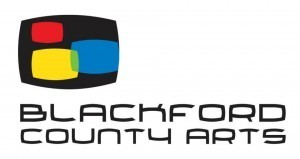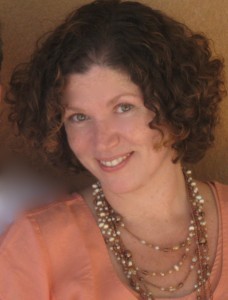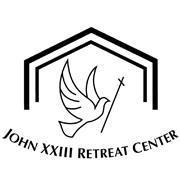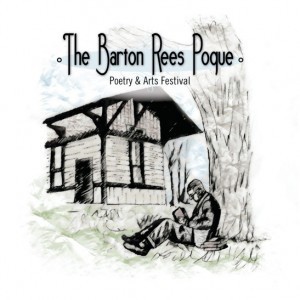Daniel Bowman Jr.'s Blog
May 19, 2021
Strange Light: A Dispatch from Isolation
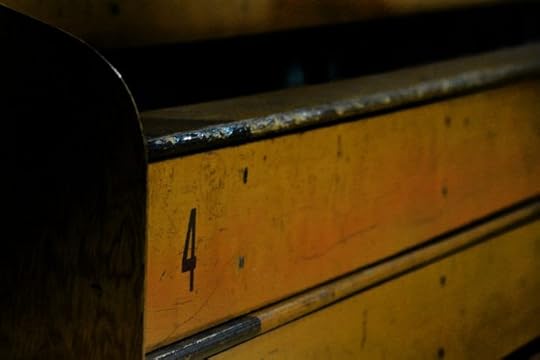
Here’s a link to a recent blog post I wrote for The Windhover.
August 15, 2012
Risking Delight
Recently I was criticized by someone I love and trust as coming down too hard on my family, being too negative about my early life. I defended my work by saying, essentially, that when I write personal essays, I want to examine what was and what is in order to better understand it; I want to tell the truth, to “transform my pain rather than transmit,” (a Richard Rohr phrase I’m very fond of quoting); and I must avoid falling back in to that dark psychological pit of guilt and shame that has taken a long time to climb out of.
I’ve seen too many lives come apart due in no small measure to the unhealthy keeping of secrets, to a lack of honesty with oneself and others. I’ve been in too many churches where people shake hands and answer, “How are you?” with lies, while suffering alone. I believe that the reflective way calls us to honesty especially when it hurts, and that authentic community springs from each of us taking what the Twelve Step Program calls “a fearless moral inventory” of our lives.
And yet…I’m still pretty new to nonfiction, and by nature I’m oversensitive and melancholy. That great aperture between what one expects and what one gets has most often revealed itself to me painfully. In other words, I interpret irony in the tragic mode. In the play of my life as I see it, there are any number of dead actors on the stage when the final curtain comes down.
There are times when I’ve done the soul work of staring into my own pain at great length at the expense of telling the whole, paradoxical truth. There are times when I just need to learn to lighten up some, to laugh at my self-seriousness from the vantage point of distance. I need to admit that my loved one who criticized my work was partly right; he’s seen me dwell on my own subjective interpretation of events so dutifully that I would turn anything into tragedy in the strictest sense. A play can be a tragedy or a comedy in the most conventional way (and still be good). A life is not an either/or proposition, but a both/and, a mystery and a paradox that contains pain and joy, regardless of the proportions. Let us recall how that young saint Anne Frank affirmed her abiding belief in the basic goodness of humankind despite hiding for her life as bombs fell overhead.
When I teach Tracy Kidder’s excellent book on Dr. Paul Farmer, Mountains Beyond Mountains, I ask students to enter into and imaginatively inhabit some of the most profound suffering on our planet: that of the poor in the nation of Haiti. By the middle of the book, we’ve read about every manner of exploitation and tyranny, starvation, natural disasters, MDR TB (multi-drug resistant tuberculosis), HIV and AIDS, and a host of other horrors that make us reconsider who we are and what we do each day.
I challenge students at this point in our study with an excerpt from a poem by Jack Gilbert, which contains these lines:
We must risk delight. We can do without pleasure,
but not delight. Not enjoyment. We must have
the stubbornness to accept our gladness in the ruthless
furnace of this world. To make injustice the only
measure of our attention is to praise the Devil.
I ask them if they believe that the speaker of the poem is right. If so, what does this mean? How should we live in the face of the knowledge of such great suffering, in “the ruthless furnace of this world,” and even in light of our own most difficult and personal pain?
I do believe the speaker of the poem has a point, and wow, no one could make that point more powerfully than in concluding that “To make injustice the only/ measure of our attention is to praise the Devil.” It is a great challenge to me.
In that spirit, I began to think on the bright moments of my childhood and early years. What did I gain that was vivid, generative, hopeful? The truth is: quite a lot. If William Stafford is right and “justice will take millions of intricate moves,” then the laws of probability alone tell us that a percentage of those moves will be positive. I pray that I can train my mind to see the bigger picture, to see the good and the bad together, the wheat and the tares growing side by side, as it were—that I will find the courage to tell the whole truth as best as I know how, especially if telling only part of it would make good copy. I want to risk delight. And I’ll start by telling some of the good sides of the story.
* * *
Five Great Things about My Parents and My Childhood , in No Particular Order
1) My mother took us to the Ilion Public Library. I don’t know what made her choose Ilion over the other libraries in the Valley (Mohawk’s was very small, but Herkimer’s was certainly adequate), but she did, and “that has made all the difference.” Ilion Library was a magical place for this lonely, sensitive kid to find best friends between the tattered covers of books. The building is historic and welcoming, in the way that the best architecture is, as Goethe said, “frozen music.” And I listened to that frozen music while working my way, most memorably, through The Boxcar Children series and into the series I would come to love most of all: The Young Alfred Hitchcock Three Investigators Mysteries, an excellent collection for any eight-year-old boy, even today. I will forever be grateful to my mom for bringing me to the Ilion library; she deserves credit for instilling in me the love of literature that would later come to shape my life.
2) We camped in the Adirondack Mountains. It’s true that some kids went to Disney World, while others saw Washington DC and the White House, and more went to Myrtle Beach or Virginia Beach or some other beach. We headed an hour or two north each summer to the nearby Adirondack Mountains. My father was at his happiest when we were camping, when he was paddling a canoe on serene water or building a fire on which to cook breakfast. My older brother and I, who fought as brothers two years apart are apt to do, seemed to get along better when we were swimming in Nicks Lake or Eighth Lake or playing baseball on the beautifully secluded fields near the campgrounds. As my parents got older and both experienced back troubles from years of strenuous labor, tenting was no longer a viable option. So they rented cabins several times—once on Blue Mountain Lake, once on Long Lake, and once just outside of Lake Placid. In those places, the most pressing of problems seemed to melt into the persistent natural beauty all around us.
3) My father loved baseball. He played catch with me by the woodpile when I was very young. Every time he tossed it my way I prayed to God I’d catch it and make my dad proud. Before cable television, we watched Game of the Week on NBC. And we often listened to the Yankees on a transistor radio. Phil “Scooter” Rizzuto’s voice intoning, “Holy cow!” never sounded better than on AM frequency. My father taught me about the game not by facilitating intimate father-son moments but rather by the way he listened or watched, by the sometimes explosive and sometimes wistful—but always baseball-intelligent—remarks he’d make to no one in particular. I catch myself doing the same thing as I watch now, pausing to explain some elaborate detail—a subtle shift by the right fielder or the way a pitcher pounds the ball low and inside to a certain kind of hitter—to anyone in my house who’ll listen. They humor me because they know it’s meaningful in the best way of a code passed down from father to son imperfectly but most generously.
4) My mother made ceramics. My mom is a pretty matter-of-fact person in most ways; she does what needs to be done as best she can, and a lot always needed to be done with four kids in a small house—not the least of which was earning money. A K-Mart cashier turned nurse, she became accustomed to being on call. And she could turn on her game face like a switch. One minute she’d be mom, but when that phone rang, she was Jeanne, RN. I was used to seeing her that way, tossing out medical terms, sometimes in uniform. So when she took a ceramics class in town I was fascinated. She’d bring home these intricate figurines painted in such lovely hues—a foretaste of art for me, the only visual art that had ever entered our home. I had a new kind of admiration for her, as the skill set and kind of patience one must’ve had to accomplish so much with ceramics seemed to make her someone entirely different. She stretched herself, or perhaps tapped into a dormant part of herself that I hadn’t known existed. She became a social being, too—another thing I had come not to expect from either of my parents. Whether it was a plump orange Halloween pumpkin or a pine-green Christmas tree with snow glistening from the branches, mom’s ceramics coming down from the attic powerfully signified the holiday season, and remained a highlight for me every year. They were, and are, delightful, and I hope my own children can enjoy them as I always have.
5) My father earned a certificate from Mohawk Valley Community College. My father worked at the Union Tool Company in the forge, which was one of the jobs even the toughest guys often couldn’t do consistently. Secure jobs for men existed primarily at Union Tool and at the Remington Arms factory, and as hard as the work was, my father never backed down. After twenty-seven and a half years of employing my dad, Union Tool closed its doors and relocated. The laws stated that the company needed to provide education to any former employees who wanted it. My dad, a man who at times suffered from social anxiety, decided to enter the CNC Machine program at MVCC. I was long-since out of college, married, and out of town by then, but I’ve seen the evidence: my dad was celebrated as one of the finest students in the program. He, in his 50’s, learned brand new skills and took a real risk. Upon completing his certificate, he was hired by an excellent precision machining company. He still works there today, and is happier in his work life than ever before.
There are other examples I could point to, healthy reminders for me that it wasn’t all bad. I haven’t even mentioned my siblings. My older brother lives on the ocean in Charleston, South Carolina, where he keeps busy raising his four children. His son has autism, and my brother has ceaselessly educated himself so he can help his boy. My younger brother and his wife lived and worked in Ithaca, NY for several years; my brother worked part-time on the campus of Cornell University where he earned a reputation for his sharp mind and dedicated work ethic. They’ve since moved on to Sarasota, Florida where they’re advancing their careers. Upon graduating from college, my sister married the love of her life, who happened to be a Mexican citizen. She lives in the city of Xalapa, Veracruz, Mexico, where she leverages her bilingual skills to translate for English-speaking visitors.
My siblings and my parents keep me grounded; they teach me that my melancholic interpretation of events, while certainly true, is not the whole truth. When we get together these days, we laugh a lot, not because we’re ignoring the pain or the bad decisions and difficult breaks visited upon us, but, I hope, because we can put them in perspective. My family—especially my older brother—gives me a good and particular sense of what it truly means to summon “the stubbornness to accept our gladness in the ruthless/ furnace of this world.” They help me risk delight and for that I’m eternally grateful.
June 19, 2012
Fall Poetry Class at Blackford Arts Center
Just confirmed I’ll be teaching two poetry writing classes at the community arts center in my town. Very excited! Here’s the first:
Writing Home: Poetry with Roots
Time:
Sat, Oct 13, 2012, 9:00 AM – 12 noon
Instructor:
Daniel Bowman Jr.
Description:
The great southern writer Flannery O’Connor once said, “Anybody who has survived his childhood has enough information about life to last him the rest of his days.” The people and events we experience early in our lives help form and shape who we are. Poetry writing provides the perfect opportunity to explore our memories. In this class, we’ll complete several poetry writing exercises focusing on childhood memories, helping you generate new material. We’ll look closely at excellent examples of “poetry with roots,” poems that take us back to the writer’s childhood and help us reflect on our own lives.
Materials:
Bring something to write with and to write on! Pen and paper are great, but a laptop is fine is you’re so inclined.
Instructor bio:
Daniel Bowman Jr. is the author of A Plum Tree in Leatherstocking Country (Virtual Artists Collective, 2012). His work has appeared in The Adirondack Review, American Poetry Journal, Books & Culture, Istanbul Literary Review, The Midwest Quarterly, The Other Journal, Rock & Sling, Rio Grande Review, Seneca Review, and other magazines. A native of upstate New York, he lives with his wife Bethany and their two children in Hartford City, Indiana. He teaches English and creative writing at Taylor University.
June 7, 2012
June 4, 2012
New at the Taylor English blog
I am thrilled to unveil the interview with my friend Denise Frame Harlan, who speaks wisdom and grace into this “gorgeous mess” of the writing life.
Read, comment, and share! (And follow @TaylorU_English to join the conversation at the intersection of literature and faith.)
The Tiniest Appearance in the New York Times…
…is nevertheless kind of fun on a Monday.
Check it out! Even better being there with Greg Wolfe, John Wilson, and Laura McGrath.
Long live Twitter(?)
April 24, 2012
PLUM TREE in Ruminate, at Holly Goes Lightly

I’m a little behind, but I wanted to finally link to Ruminate‘s review of Plum Tree, written by Hannah VanderHart, a second-year graduate fellow at The Lannan Center for Poetics and Social Practice in Washington, DC (Georgetown University). The Lannan Center, as many of you know, is one of the most profoundly important institutions in the poetry world. I often use clips from their reading series in class (nearly every semester I end up showing Octavio Paz reading “I Speak of the City”). So I was deeply gratified by Hannah’s reflections. She is also a poet, whose work can be found in many journals including the current issue of Rock & Sling.
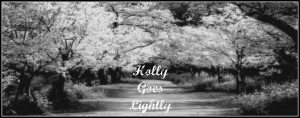
Secondly, I wanted to thank Holly Jennings for her wonderful thoughts on Plum Tree as well. Holly’s writing–from which I’ve often taught excerpts in my classes–is sharp, poignant, humble, and hilarious. I was so gratified to run into her at Calvin’s Festival of Faith and Writing this past weekend (which I’ll write about soon). Holly’s reflections on the book are meaningful to me on several levels, not the least of which is because she and I were undergraduates together and so we shared a formative literary experience at Roberts Wesleyan.
Here are her thoughts. Do yourself a favor and make Holly Goes Lightly a regular read.
Enjoy the reviews, and please join the conversation on Amazon, Barnes & Noble, Goodreads, my blog, or your own blog. Thanks!
March 26, 2012
Dispatches from Middle America: Part 3
Okay, this should be the last post for a while. But I wanted to make note of one more item:
I will help lead a writer’s retreat at John XXIII Retreat Center in Hartford City, IN, July 15th – 22nd. Make the commitment to set aside this time now.
Dispatches from Middle America: Part 2
Hey, there–it’s me again. Just wanted to get the word out about the upcoming Barton Rees Pogue Poetry and Arts Festival in Upland.
Date: April 14th, 2012
Time: 9:00 AM – 5:30 PM
Place: Upland Community Church and Taylor University (see the website for details)
I will be leading a poetry workshop from 1:00 – 2:00 PM as part of the festival.
The keynote is Karen Kovacik, Indiana’s Poet Laureate and Professor of English at IUPUI.
Come join us!
Dispatches from Middle America: Part 1
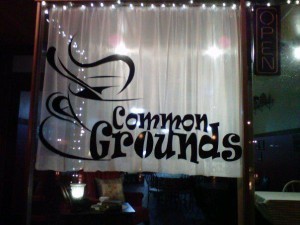
Hey there, friends.
I will be reading and leading an open mic poetry night at Common Grounds in Hartford City.
Date: Fri, April 14th
Time: 7:00 PM
Place: Common Grounds Coffee Shop, 205 W. Washington St., Hartford City, IN 47348
Copies of Plum Tree will be available for the special price of ten bucks. Come on out!

